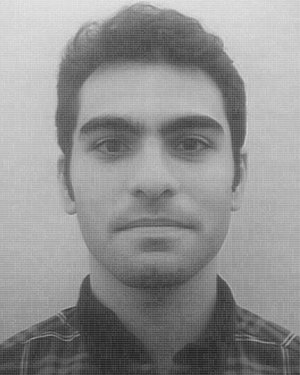Abstract:
The theme of this paper is three-phase distribution system modeling suitable for the Z-Bus load-flow. Detailed models of wye and delta constant-power, constant-current, a...Show MoreMetadata
Abstract:
The theme of this paper is three-phase distribution system modeling suitable for the Z-Bus load-flow. Detailed models of wye and delta constant-power, constant-current, and constant-impedance loads are presented. Models of transmission lines, step-voltage regulators, and transformers that build the bus admittance matrix (Y-Bus) are laid out. The Z-Bus load-flow is then reviewed and the singularity of the Y-Bus in case of certain transformer connections is rigorously discussed. Based on realistic assumptions and conventional modifications, the invertibility of the Y-Bus is proved. Last but not least, MATLAB scripts that model the components of the IEEE 37-bus, the IEEE 123-bus, the 8500-node feeders, and the European 906-bus low-voltage feeder are provided.
Published in: IEEE Transactions on Power Systems ( Volume: 33, Issue: 2, March 2018)
Funding Agency:

Department of Electrical, and Computer Engineering, University of Texas at San Antonio, San Antonio, TX, USA
Mohammadhafez Bazrafshan received the B.S. degree from Iran
University of Science and Technology, Tehran, Iran, in 2012 and the M.Sc. degree from the University of Texas at San
Antonio, San Antonio, TX, USA, in 2014, both in electrical engineering. He is currently working toward the Ph.D.
degree with research interests in smart power grids.
Mohammadhafez Bazrafshan received the B.S. degree from Iran
University of Science and Technology, Tehran, Iran, in 2012 and the M.Sc. degree from the University of Texas at San
Antonio, San Antonio, TX, USA, in 2014, both in electrical engineering. He is currently working toward the Ph.D.
degree with research interests in smart power grids.View more

Department of Electrical, and Computer Engineering, University of Texas at San Antonio, San Antonio, TX, USA
Nikolaos Gatsis received the Diploma (Hons.) degree in electrical and
computer engineering from the University of Patras, Patras, Greece, in 2005. He received the Graduate and M.Sc.
degrees in electrical engineering from the University of Minnesota, Minneapolis, MN, USA, in 2010, and the Ph.D.
degree in electrical engineering with minor in mathematics in 2012. He is currently an Assistant Professor in the
Department o...Show More
Nikolaos Gatsis received the Diploma (Hons.) degree in electrical and
computer engineering from the University of Patras, Patras, Greece, in 2005. He received the Graduate and M.Sc.
degrees in electrical engineering from the University of Minnesota, Minneapolis, MN, USA, in 2010, and the Ph.D.
degree in electrical engineering with minor in mathematics in 2012. He is currently an Assistant Professor in the
Department o...View more

Department of Electrical, and Computer Engineering, University of Texas at San Antonio, San Antonio, TX, USA
Mohammadhafez Bazrafshan received the B.S. degree from Iran
University of Science and Technology, Tehran, Iran, in 2012 and the M.Sc. degree from the University of Texas at San
Antonio, San Antonio, TX, USA, in 2014, both in electrical engineering. He is currently working toward the Ph.D.
degree with research interests in smart power grids.
Mohammadhafez Bazrafshan received the B.S. degree from Iran
University of Science and Technology, Tehran, Iran, in 2012 and the M.Sc. degree from the University of Texas at San
Antonio, San Antonio, TX, USA, in 2014, both in electrical engineering. He is currently working toward the Ph.D.
degree with research interests in smart power grids.View more

Department of Electrical, and Computer Engineering, University of Texas at San Antonio, San Antonio, TX, USA
Nikolaos Gatsis received the Diploma (Hons.) degree in electrical and
computer engineering from the University of Patras, Patras, Greece, in 2005. He received the Graduate and M.Sc.
degrees in electrical engineering from the University of Minnesota, Minneapolis, MN, USA, in 2010, and the Ph.D.
degree in electrical engineering with minor in mathematics in 2012. He is currently an Assistant Professor in the
Department of Electrical and Computer Engineering at the University of Texas at San Antonio, San Antonio, TX, USA. His
research interests include the areas of smart power grids, renewable energy management, communication networks, and
cyber-physical systems, with an emphasis on optimal resource management.
Prof. Gatsis co-organized symposia in the area of Smart Grids in IEEE GlobalSIP 2015 and IEEE GlobalSIP 2016. He was
also a Technical Program Committee Member for symposia in IEEE SmartGridComm 2013–2017.
Nikolaos Gatsis received the Diploma (Hons.) degree in electrical and
computer engineering from the University of Patras, Patras, Greece, in 2005. He received the Graduate and M.Sc.
degrees in electrical engineering from the University of Minnesota, Minneapolis, MN, USA, in 2010, and the Ph.D.
degree in electrical engineering with minor in mathematics in 2012. He is currently an Assistant Professor in the
Department of Electrical and Computer Engineering at the University of Texas at San Antonio, San Antonio, TX, USA. His
research interests include the areas of smart power grids, renewable energy management, communication networks, and
cyber-physical systems, with an emphasis on optimal resource management.
Prof. Gatsis co-organized symposia in the area of Smart Grids in IEEE GlobalSIP 2015 and IEEE GlobalSIP 2016. He was
also a Technical Program Committee Member for symposia in IEEE SmartGridComm 2013–2017.View more


